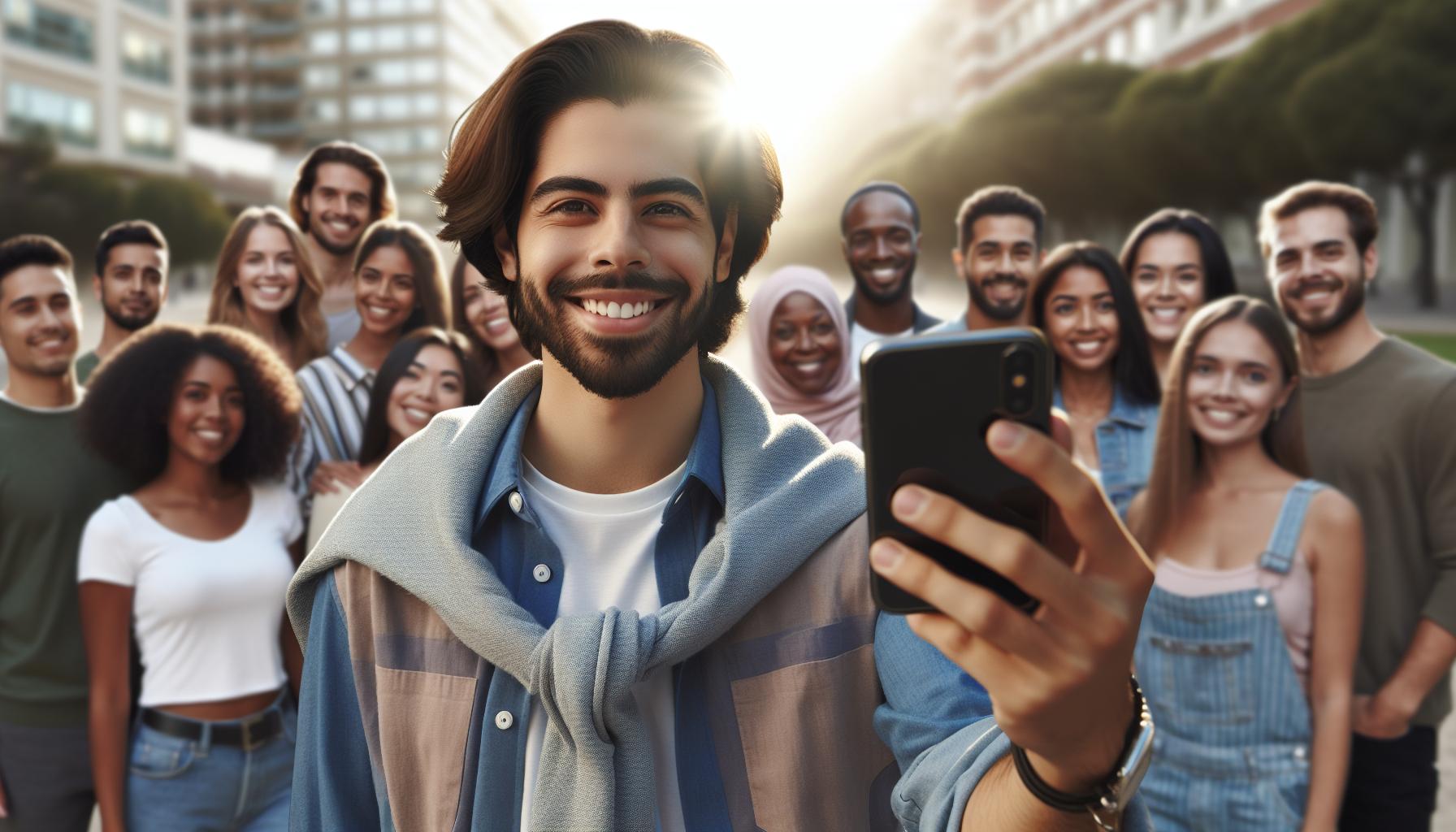
Influencer marketing is like that trendy coffee shop that everyone raves about—it just keeps getting better. As brands scramble to capture the attention of savvy consumers, influencers have become the secret sauce in the marketing recipe. But what does the future hold for this dynamic duo? Spoiler alert: it’s not just about pretty pictures and catchy hashtags anymore.
Future of Influencer Marketing
Influencer marketing continues to evolve, adapting to the changing digital landscape. Growth in social media platforms enhances opportunities for brands to connect with diverse audiences through targeted campaigns. Emerging technologies, such as artificial intelligence and machine learning, facilitate data-driven decisions, optimizing influencer selections.
Micro-influencers gain traction, as their engagement rates and authenticity attract brands seeking genuine connections. Utilizing smaller influencer audiences often results in higher ROI, making them valuable assets in modern marketing strategies. Brands recognize that aligning with well-matched influencers fosters trust and drives consumer loyalty.
Video content surges in popularity, with platforms like TikTok and Instagram Reels leading the charge. Short-form videos deliver impactful messages quickly, captivating viewer attention. More brands leverage this format, integrating storytelling elements that resonate with audiences.
Additionally, the shift towards transparency compels influencers and brands to disclose partnerships clearly. Audiences demand honesty, prompting companies to create authentic narratives that align with their values. As a result, trust becomes crucial in influencer collaborations.
Shifts in consumer behavior also influence marketing strategies. Consumers increasingly seek social proof, making influencer endorsements a vital factor in purchasing decisions. Brands embracing this trend can enhance credibility and foster community engagement.
Overall, the future of influencer marketing hinges on authenticity, technology, and adaptation. Increasingly, brands that prioritize genuine relationships and strategic partnerships will thrive in this dynamic environment while capturing consumer attention effectively.
Current Trends Shaping Influencer Marketing

Influencer marketing evolves continuously, shaped by emerging trends that redefine strategies for brands. Marketers focus on authenticity and engagement as key metrics for success.
Rise of Micro and Nano Influencers
Micro and nano influencers attract attention due to their authentic engagement with niche audiences. Brands utilize these influencers to foster genuine connections, resulting in higher trust among their followers. Data highlights that influencers with fewer than 10,000 followers often boast engagement rates exceeding 5%, surpassing their larger counterparts. Leveraging specific niches allows brands to target interested customers effectively. These smaller influencers create content that resonates with their audience, enhancing relatability and credibility.
The Impact of Social Media Algorithms
Social media algorithms significantly influence influencer marketing strategies. Changes in algorithms affect content visibility, compelling brands to adapt their approaches. Brands prioritize relationships with influencers who understand these algorithms, ensuring audience engagement. Data indicates that platforms like Instagram favor video content, driving brands to incorporate engaging video strategies. Adapting to algorithm updates enables brands to maintain visibility and relevance in a crowded digital landscape. Collaboration with savvy influencers ensures that brands navigate these complexities successfully.
Emerging Technologies in Influencer Marketing

Emerging technologies shape influencer marketing strategies, driving innovation and improving connections between brands and consumers. Brands leverage these advancements to adapt and enhance their outreach.
Artificial Intelligence and Automation
Artificial intelligence revolutionizes influencer marketing by streamlining the selection and analysis process. Data-driven algorithms identify the most suitable influencers based on target audience characteristics, engagement metrics, and content alignment. Brands can automate tasks like campaign management and performance tracking, allowing for real-time adjustments. Increased accuracy in predicting consumer behavior leads to more effective partnerships. The rise of AI-powered tools enables brands to assess campaign effectiveness, enhancing decision-making. Staying informed on these tools gives brands a competitive edge.
Virtual and Augmented Reality
Virtual reality and augmented reality create immersive experiences that engage consumers in novel ways. These technologies allow influencer collaborations to transcend traditional formats, enabling interactive campaigns that capture viewer attention. Influencers can showcase products in 3D environments, giving customers a unique perspective. As video content gains popularity, AR filters and VR experiences enhance storytelling efforts. Engaging consumers through simulations fosters deeper connections and bolsters product familiarity. Utilizing these immersive technologies positions brands at the forefront of innovative marketing tactics.
Challenges Facing Influencer Marketing

Influencer marketing faces significant challenges that impact its effectiveness and credibility. Addressing these obstacles is crucial for maintaining positive relationships with audiences.
Authenticity and Transparency Issues
Authenticity remains a top concern in influencer marketing. Consumers increasingly demand genuine connections, and misleading endorsements can damage trust. Clear disclosures of paid partnerships are essential for maintaining integrity. Influencers and brands both must embrace transparency to align with audience expectations. Studies indicate that around 63% of consumers expect brands to disclose partnerships. When influencers authentically represent brands, engagement rates improve, reinforcing brand loyalty.
Regulation and compliance pose additional challenges in influencer marketing. As governments worldwide develop guidelines for advertising, brands must navigate these evolving regulations. Compliance with standards like the Federal Trade Commission (FTC) guidelines is critical to avoid penalties. Brands and influencers alike should stay informed about legal obligations related to endorsements. Non-compliance can lead to significant reputational damage. Proactive measures, like educating influencers on these regulations, can foster a more responsible marketing environment. The emphasis on ethical practices contributes to the long-term success of influencer campaigns.
Future Predictions for Influencer Marketing
The future of influencer marketing reveals several key trends influenced by consumer behavior and data regulations. Continued evolution shapes how brands engage with audiences, paving the way for innovative strategies.
Evolving Consumer Behavior
Authenticity drives evolving consumer behavior, with audiences gravitating towards influencers who align with their values. Shoppers prioritize genuine connections, leading brands to collaborate with micro and nano-influencers. Leveraging these influencers can enhance relatability, as they often boast engagement rates exceeding 5%. Data shows that smaller influencers achieve higher trust, making them prime candidates for targeted campaigns. Consumers increasingly seek social proof in their purchasing decisions, highlighting the effectiveness of influencer endorsements. Adapting marketing strategies to cater to these consumer preferences fosters loyalty and long-term relationships.
The Role of Data Privacy
Data privacy remains a prominent concern, influencing influencer marketing strategies. As regulations tighten, brands must navigate compliance while effectively reaching audiences. Transparency in partnerships becomes crucial, as consumers expect brands to safeguard their information. Awareness of privacy issues can enhance brand reputation and build trust among customers. Striking a balance between personalized marketing and data protection is essential for success. Influencers need to understand these dynamics, ensuring that their practices align with regulations. Adapting to the changing landscape of data privacy fosters a responsible and effective approach to influencer marketing.
Regulation and Compliance
The future of influencer marketing is set to be shaped by authenticity technology and consumer expectations. Brands must focus on building genuine relationships with influencers who resonate with their target audiences. As platforms evolve and consumer behavior shifts towards transparency and trust, adapting strategies will be crucial for success.
Embracing micro and nano-influencers can enhance engagement while leveraging emerging technologies will streamline campaign management. By prioritizing relatable content and maintaining compliance with regulations, brands can navigate the complexities of this dynamic landscape. The path ahead promises exciting opportunities for those willing to innovate and connect authentically with their consumers.
